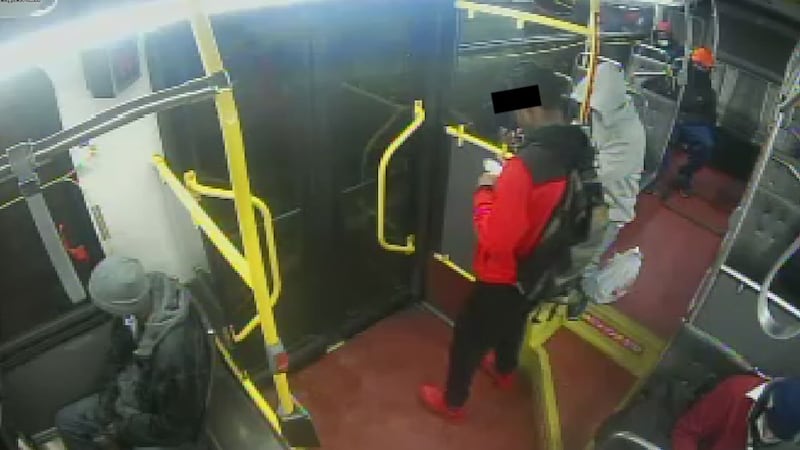SEATTLE — The University of Washington released a new study on Thursday, digging into the potential risks posed by drug smoke on public transit.
As part of the study commissioned by Sound Transit and three other transit agencies, researchers collected air and surface samples from 11 buses and 19 train cars during times of day and on routes where smoking illicit substances was most common. Ultimately, they found that “the levels measured do not pose a health risk to the riding public or employees.”
Our KIRO 7 investigations on board King County Metro transit buses showed a staggering number of people smoking blue fentanyl pills on foil -- many of them passing out immediately -- while other riders were all around them.
“The signs are they put their head down and start watching for the flames,” King County Metro bus driver Erik Christensen told KIRO 7 in early 2022.
Drivers told us they often became lightheaded and sick from the fumes, and some told us they were even rushed to the hospital.
In UW’s study, researchers hid air filter devices near the bus and train operator’s seat to measure driver exposure, and scattered more throughout the bus and train cars.
On both buses and trains, they found meth in every air sample they measured, as well as on 98% of surface samples.
A few of the levels of the meth they found were above the state levels for decontamination guidance, which means potentially hazardous levels.
When researchers swabbed non-cleaned ventilation surfaces on five buses and six trains, again, they found traces of drugs on most of them.
Sound Transit’s outlook on the study was rosy.
“The good news is that the outcomes were good,” Sound Transit CEO Julie Timm said on Thursday. “Transit is safe -- it was safe before, it remains safe.”
That sentiment was shared by local health officials.
“From the public health perspective, the risk is minimal to negligible both to operators as well as riders,” Public Health Seattle & King County’s Dr. Faisal Khan said. “Metro and transit vehicles are perfectly safe.”
Although there is no study showing what kind of levels of second hand drug exposure can affect a bus rider or a driver, public health doctors say they’re confident most of the levels they found are not dangerous.
That said, in 2002, King County Metro bus drivers filed 52 workers-comp claims, saying exposure to drug fumes on board the buses were making them sick.
The UW study team recommended transit agencies improve their onboard air filteration to MERV 13, capturing 85% of particles smaller than 1 micron; frequently clean bus and train interiors; provide employee training about related health issues and how to handle incidents; and offer mental health services for people stressed by observing drug use, for instance, if the employee is recovering from addiction or experienced drug-related family trauma.
©2023 Cox Media Group








